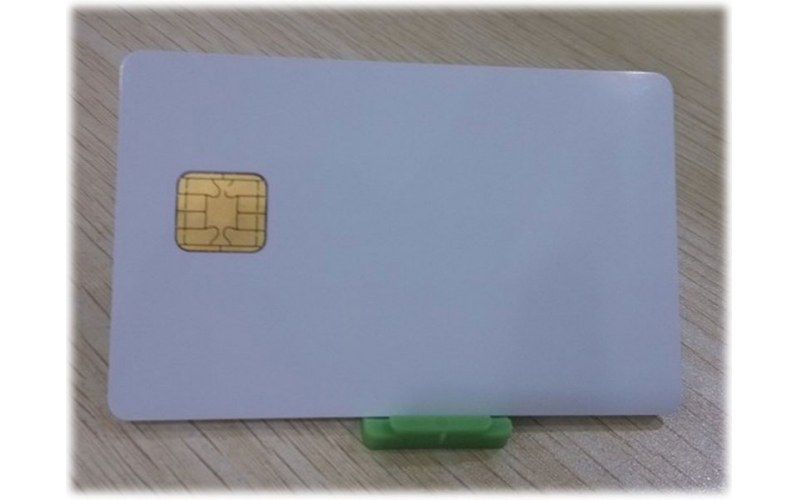The J2A080 / J2A081 (JCOP v2.4.1 R3) JavaCard 2.2.2, GlobalPlatform 2.1.1 as successor of the traditional JCOP21 is the contact-interface edition of NXP JCOP implementation. This high level, but low priced product is targeted to innovative smartcard-applications at the intersection of the payment, ID, loyalty and eHealth markets. The (traditional named) JCOP21 is available 80kB EEPROM chips. For even more price-sensitive projects ask for the JCOP-edition with 40kB EEPROM. For the more challenging application we could make a 144kB-version available. All models manufactured with full credit-card from-factor or as SIM-card (ID-000), Micro-SIM and Nano-SIM (4FF) and / or color-printed. Ask for technical details.
| FOB Price: | US $0.1 - 2 / Piece |
|---|
| Min.Order Quantity: | 500 Piece/Pieces |
|---|
| Supply Ability: | 5000000 Piece/Pieces per Month |
|---|
| Port: | Shenzhen |
|---|
| Payment Terms: | L/C,T/T,Western Union,MoneyGram,Paypal |
|---|
Quick Details
Place of Origin: Guangdong, China (Mainland)
Brand Name: M&W
Model Number: Java card jcop card/J2A080
Product name: Java card jcop card/J2A080
Material:: PVC/PET/ABS/Paper/Metal
Size:: 85.5*54*0.84mm
Thickness:: 0.8mm-0.84mm/Customized
Standard Card Weight:: About 1,000pcs 6KG
R/W Cycles:: Up to 100,000 cycles
Operation Temperature:: -25° C to + 60° C
Artwork format: AI,CDR,PDF,PSD file
Smart Chips: contact or dual interface
RFID inlay add: available
Packaging & Delivery
| Packaging Details: | 200pcs/box, 5/10/15/20/25 boxes/carton, or as per your request |
|---|
.richtext [data-maya] { width: 750px; font-size:14px; }
Product Description
Java card jcop card
J2A080- JAVA based smart card,80k EEPROM
Brand new generation of popular JCOP cards! Arrived just now.JAVA based, JCOP2.4.1,JC2.2.2, GP 2.1.1., T=1,SCP02
Cards come white,blank. We can print them with your logo or other artwork.
Many applications but specially suited for processor and security intensive ones like banking, credit cards,personal ID cards, documents…2/3 track HiCo mag stripe available.
Chip is made in Germany .Card is made in China, M&W company.
Need to ask something? Not sure what to buy? Contact us on SKYPR,Skype ID=xczy.julie
1.Size: 85.5*54*0.76mm
2.Material:PVC/PET/ABS/Paper/Metal
3. Different chips available (CIU98768A, dual interface,etc)
Product Specification:
1) Material: white PVC/ transparent PVC / ABS/PET/PETG
2) Size: 85.5 x 54mm or follow client's requirement
3) Thickness: 0.8mm-1.0mm
4) Artwork format: AI,CDR,PDF,PSD file
5) Print: offset print,screen print
6) Print machine:Germany Heidelberg
Available Crafts
A. Thermal printing numbers
B. Golden/Silver background
C. Golden /Silver hot-stamping
D. Spot UV
E. silver/ gold Embossing
F. Ordinary lamination for re-printing
G. Protect coating
H. Scratch off panel
I. Magnetic stripe: LOCO(300OE magnetic strip), HICO(2750OE or 4000OE magnetic strip )
J. Ink-jet Bar-code/UV bar-code /thermal bar-code
K. Water mark
L: hologram
M: laser bar-code/series number/UID number
Java Card is an open standard from Sun Microsystems for a smart card developmentplatform. Smart cards created using the Java Card platform have Java applets stored on them. The applets can be added to or changed after the card is issued.
There are two basic types of smart cards. The memory smart card is the familiar removable memory device; it usually features read and write capabilities and perhaps security features. The more complex version, the processor smart card, is a very small and extremely portable computing device that could be carried in your wallet. Java-based smart cards belong to the latter category. They store data on an integrated microprocessor chip. Applets are loaded into the memory of the microprocessor and run by the Java Virtual Machine. Similarly to MULTOS, another smart card development technology, Java Card enables multiple application programs to be installed and coexist independently. Individual applets are protected by a firewall to preserve their integrity and prevent tampering. Applications can be updated dynamically.
In the United States, the Department of Defense, Visa, and American Express are among the organizations creating Java Card-based applications.
Java Card is an open standard from Sun Microsystems for a smart card developmentplatform. Smart cards created using the Java Card platform have Java applets stored on them. The applets can be added to or changed after the card is issued.
There are two basic types of smart cards. The memory smart card is the familiar removable memory device; it usually features read and write capabilities and perhaps security features. The more complex version, the processor smart card, is a very small and extremely portable computing device that could be carried in your wallet. Java-based smart cards belong to the latter category. They store data on an integrated microprocessor chip. Applets are loaded into the memory of the microprocessor and run by the Java Virtual Machine. Similarly to MULTOS, another smart card development technology, Java Card enables multiple application programs to be installed and coexist independently. Individual applets are protected by a firewall to preserve their integrity and prevent tampering. Applications can be updated dynamically.
In the United States, the Department of Defense, Visa, and American Express are among the organizations creating Java Card-based applications.
Java Card is an open standard from Sun Microsystems for a smart card developmentplatform. Smart cards created using the Java Card platform have Java applets stored on them. The applets can be added to or changed after the card is issued.
There are two basic types of smart cards. The memory smart card is the familiar removable memory device; it usually features read and write capabilities and perhaps security features. The more complex version, the processor smart card, is a very small and extremely portable computing device that could be carried in your wallet. Java-based smart cards belong to the latter category. They store data on an integrated microprocessor chip. Applets are loaded into the memory of the microprocessor and run by the Java Virtual Machine. Similarly to MULTOS, another smart card development technology, Java Card enables multiple application programs to be installed and coexist independently. Individual applets are protected by a firewall to preserve their integrity and prevent tampering. Applications can be updated dynamically.
In the United States, the Department of Defense, Visa, and American Express are among the organizations creating Java Card-based applications.
